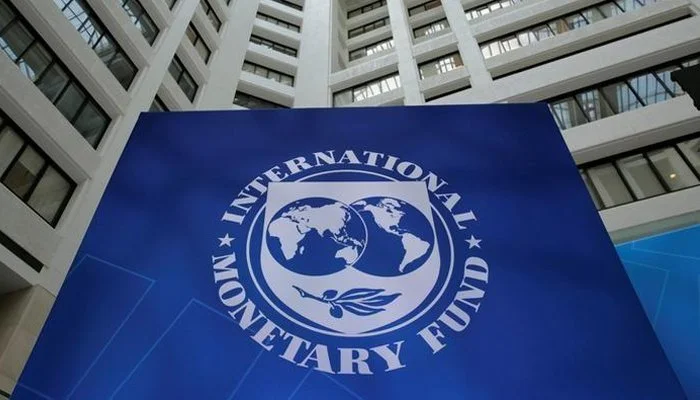At the 2025 Annual Meetings of the International Monetary Fund (IMF) and World Bank in Washington, D.C., IMF Managing Director Kristalina Georgieva called attention to the mounting fiscal damage caused by Illicit Financial Flows (IFFs) from Nigeria — a challenge she said continues to drain public resources and undermine economic stability.
Georgieva described illicit outflows as “a major threat to fiscal sustainability,” pledging a renewed IMF focus on tracing such transactions to help Nigeria and other developing countries close persistent revenue gaps.
“For countries like Nigeria, the IMF’s renewed focus on tracing Illicit Financial Flows could provide a blueprint for plugging fiscal leakages that have long undermined revenue generation and sustainable growth,” she said.
IFFs: A Growing Threat to Fiscal Stability
According to the IMF chief, IFFs — which encompass stolen public funds, proceeds from organized crime, tax evasion, and untraceable digital transactions — now pose a global threat to governance systems.
“These flows erode trust, drain public resources, and cripple development efforts, especially in emerging economies,” Georgieva noted.
IMF analysts have identified new dimensions of IFFs, ranging from outright embezzlement to the misuse of digital assets such as cryptocurrencies.
“With digital money, criminal activities can now be funded without being traced,” Georgieva warned. “This is a serious problem, and we must treat it as such.”
IMF’s New Strategy to Track “Dirty Money”
To address the crisis, the IMF has strengthened its Anti-Money Laundering and Combating the Financing of Terrorism (AML/CFT) framework.
Since 2023, “following the money” has become a mandatory component of its Article IV consultations, allowing the Fund to routinely evaluate member countries’ exposure to illicit transactions and financial integrity risks.
Georgieva explained that new financial sector assessment tools now embed lessons from previous oversight gaps, while IMF-supported programs will include specific measures to tackle illicit flows in economies where the problem is systemic.
“We are training country authorities to detect and trace illicit financial flows, to be more alert and act quickly,” she said. “Digital tools can help, but they also open new pathways for evasion.”
Governance: The Root of the Problem
The IMF chief emphasized that combating IFFs requires more than financial oversight — it demands stronger governance and institutional reform.
Through its Governance Diagnostics Initiative, the Fund now works with member nations to identify and correct structural weaknesses that allow corruption and financial crimes to flourish.
“The governance diagnostic is not an audit,” Georgieva clarified. “It identifies vulnerabilities in institutional setups — the breeding grounds for corruption — and recommends reforms to address them.”
She also encouraged collaboration between governments, civil society, and international partners. “Civil society often knows where the vulnerabilities lie,” she said. “Working together builds trust and delivers results.”
The IMF is already implementing such frameworks in countries like Sri Lanka and Kenya, which have partnered with the Fund to improve financial transparency and strengthen governance.
Nigeria’s Economic Outlook Brightens
Alongside the crackdown on IFFs, the IMF offered Nigeria a more optimistic macroeconomic forecast. In its October 2025 World Economic Outlook (WEO) report titled “Global Economy in Flux”, the Fund upgraded Nigeria’s 2025 growth projection to 3.9%, up 0.5 percentage points from July’s estimate.
Nigeria’s real GDP grew by 4.1% in 2024 and is expected to accelerate to 4.2% in 2026, supported by higher oil production, fiscal reforms, and improved investor confidence. The IMF attributed the resilience to stronger domestic fundamentals and reduced exposure to global tariff shocks.
The Sub-Saharan Africa region also received a modest upgrade, with growth now projected at 4.1% in 2025 and 4.2% in 2026, driven by macroeconomic stabilization and structural reforms in key economies such as Nigeria and Ethiopia.
Inflation Still a Concern
Despite the improved outlook, inflation remains one of Nigeria’s biggest macroeconomic hurdles. The IMF expects average consumer prices to fall from 31.4% in 2024 to 23% in 2025, and further to 22% in 2026, reflecting gradual disinflation amid persistent food and energy price pressures.
Nigeria’s current account surplus is projected to narrow from 6.8% of GDP in 2024 to 5.7% in 2025, and 3.6% in 2026, as rising imports offset gains from oil exports.
The Fund said the forecasts also reflect Nigeria’s recent GDP rebasing, with 2019 adopted as the new base year — expanding official GDP by more than 40% through the inclusion of underreported sectors such as the digital economy, informal agriculture, and modular refining.
Sustaining Reforms for Inclusive Growth
Speaking at the press briefing on the WEO, Denz Igan, Division Chief at the IMF’s Research Department, said the revision reflects “reduced uncertainty and Nigeria’s limited exposure to U.S. tariffs,” alongside a more stable exchange rate and improving financial conditions.
“Since July, we’ve seen stronger investor confidence, exchange rate appreciation, and higher hydrocarbon output due to improved security in producing areas,” Igan explained.
However, the IMF urged Nigeria to maintain fiscal discipline, strengthen institutional frameworks, and accelerate reforms to ensure long-term stability and inclusive growth.
“In such an environment, deepening structural reforms, improving debt transparency, and mobilizing domestic revenue through effective tax measures are essential to unlocking the region’s economic potential,” Igan said.

